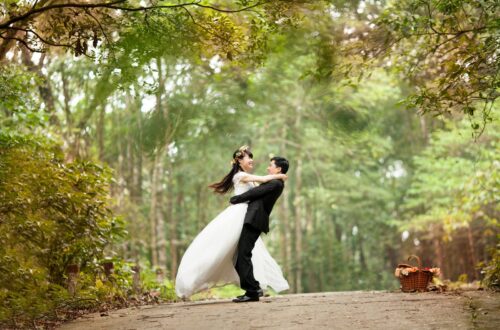
Will a love spell help me get my partner back?
Love, the most profound and exhilarating emotion known to humanity, has been the subject of fascination and enchantment for centuries. It transcends cultural boundaries and speaks to the core of human experience. Love magic, often referred to as “love spells” or “romantic enchantments,” is a domain of mysticism and esoteric knowledge that seeks to influence and enhance matters of the heart. This age-old practice has captured the imagination of countless individuals who yearn to explore its mysteries, hoping to ignite or rekindle the flames of passion in their relationships. In this article, we will delve into the world of love magic, examining its origins, principles, ethical considerations, and its place in the modern world.
The Origins of Love Magic: A Historical Perspective
Love magic is a concept deeply rooted in the annals of human history. Throughout the ages, people have turned to supernatural forces, rituals, and incantations in their quest for love and affection. Ancient civilizations, from the Egyptians and Greeks to the Romans, had their own love spells and rituals. These practices often invoked the aid of deities associated with love and desire, such as Aphrodite, Eros, or Cupid.
In the Middle Ages, love magic became entwined with folklore and superstition. Grimoires and spellbooks contained recipes for concocting love potions, charms, and incantations. People believed that through the manipulation of magical forces, they could attract the attention and affection of their desired partners.
During the Renaissance, the study of love magic became more structured and scholarly, blending elements of mysticism with alchemy and astrology. Scholars like Marsilio Ficino and Giovanni Pico della Mirandola explored the relationship between celestial bodies and human emotions, contributing to the development of astrological love magic.
In the modern era, love magic has evolved, adapting to changing cultural norms and beliefs. Today, it is often associated with contemporary pagan and neo-pagan movements, as well as New Age spirituality. Love spells and rituals persist as a means to explore and enhance the depths of romantic relationships.
Principles of Love Magic: The Art of Attraction
Love magic operates on the belief that energy, intent, and intention can influence the feelings and emotions of individuals. Practitioners of love magic believe that they can tap into the universal energies that connect all living beings and use them to create or enhance romantic connections. Here are some of the fundamental principles of love magic:
- Intent and Focus: Love magic revolves around intent and focused energy. Practitioners channel their desires and intentions, concentrating on the specific outcome they seek, whether it’s finding a new love, rekindling a faded romance, or strengthening an existing relationship.
- Correspondences: Many love magic rituals involve the use of symbols, herbs, crystals, and colors that are believed to correspond with love and attraction. These correspondences are chosen for their perceived energetic resonance with the desired outcome.
- Rituals and Spells: Love magic often involves the performance of rituals and spells. These can range from simple acts of visualization and meditation to more complex ceremonies involving candles, incense, and written incantations. These rituals are designed to direct energy toward the desired romantic goal.
- Timing: The timing of love magic rituals is often aligned with astrological events, lunar phases, and other celestial occurrences. Certain days and times are believed to be more conducive to the success of love spells.
- Deity and Spirit Invocation: Some practitioners invoke the aid of deities or spirits associated with love and romance, seeking their guidance and assistance in matters of the heart.
Modern Perspectives on Love Magic
In the modern era, love magic has found a place in various subcultures and spiritual movements. Neo-pagan traditions, such as Wicca and modern witchcraft, often incorporate love magic into their practices. Many of these practitioners approach love magic as a form of natural or sympathetic magic, believing that by aligning themselves with the forces of attraction, they can enhance their love lives.
The New Age and metaphysical communities also embrace love magic, emphasizing the power of positive intention, energy work, and the law of attraction. These approaches often place less emphasis on traditional rituals and spells and more on self-love and personal transformation as a means to attract and maintain fulfilling relationships.
It is important to note that while love magic remains a topic of intrigue and interest for many, it is not without controversy. Skeptics often view it as a pseudoscience or superstition, and there are concerns about the ethical implications of attempting to influence another person’s emotions through magical means.
The Modern Role of Love Magic
In the 21st century, love magic continues to captivate the imaginations of individuals seeking to enhance their romantic lives. Its role in modern society is multifaceted:
- Personal Empowerment: Love magic can serve as a means of personal empowerment and self-improvement. Many practitioners believe that by aligning themselves with the energies of love and attraction, they can become more confident, open, and loving individuals.
- Strengthening Relationships: Love magic can be employed to strengthen existing relationships. Couples often engage in mutual rituals or spells to deepen their connection and reignite the flames of passion.
- Self-Love and Self-Care: A significant trend within love magic is the emphasis on self-love and self-care. Practitioners focus on nurturing their own well-being and self-esteem as a foundation for healthier relationships.
- Spirituality and Connection: For some, love magic is a deeply spiritual practice, helping them connect with a sense of the divine or the transcendent through the lens of love and attraction.
- Cultural and Subcultural Movements: Love magic remains a part of various subcultures, from neo-paganism to New Age spirituality. It provides a sense of community and shared beliefs for those who are drawn to these movements.
Love magic, with its rich historical roots and diverse modern interpretations, remains a captivating and enigmatic practice. It is a realm where intention, energy, and the mysteries of the heart converge. While it can offer personal growth, empowerment, and a sense of connection, practitioners must approach it with ethical responsibility and a deep respect for the free will and autonomy of others. In a world where love remains a potent force of human existence, love magic persists as a mirror reflecting our timeless desire for connection, affection, and the enduring magic of the heart.
Wicca love magic and ancient Egyptian love magic – a comparison
Wicca Love Magic: A Modern Pagan Tradition
Wicca is a modern pagan, witchcraft tradition that emerged in the mid-20th century, largely popularized by figures such as Gerald Gardner and Doreen Valiente. It draws from a blend of Western occultism, folk magic, and nature-based spirituality. Wicca is characterized by its reverence for nature, the veneration of deities, and the observance of seasonal cycles.
- Origins and History: Wicca, as we know it today, is a relatively recent tradition. It was influenced by older forms of witchcraft, folk magic, and occult practices. Its emphasis on love and attraction spells is part of a broader focus on harnessing natural energies and the power of intention to manifest one’s desires. Wiccans often invoke deities associated with love, such as the goddess Aphrodite or the god Eros, in their love magic rituals.
- Core Beliefs: Wiccans believe in a dual deity system, which usually consists of a Goddess and a God. These deities represent the divine feminine and masculine aspects of existence. Love magic in Wicca often involves invoking the goddess of love or the god of desire to empower spells and rituals. Wiccans also celebrate the Wheel of the Year, a series of seasonal festivals that align with natural and agricultural cycles.
- Practices and Rituals: Love magic in Wicca includes a range of practices and rituals. Common elements may include the use of candles, crystals, herbs, and incense, along with spoken incantations or chants. Visualization and meditation are integral to focusing intention. Some Wiccans may also work with the cycles of the moon, such as performing love spells during a waxing moon to attract love and during a waning moon to banish negativity from a relationship.
- Ethical Considerations: Wiccans place a strong emphasis on the ethical use of magic. The Wiccan Rede, a central moral guideline, states, “An’ it harm none, do what ye will.” This principle underscores the importance of not causing harm to others when conducting love magic. Consent, free will, and respect for the autonomy of all parties involved are paramount.
Ancient Egyptian Love Magic: An Ancient Civilization’s Approach
Ancient Egypt, known for its rich mythology, spirituality, and complex belief systems, also had a tradition of love magic. In the Nile Valley, love and desire were essential aspects of life, and magical practices were used to secure these desires.
- Origins and History: Love magic in ancient Egypt dates back to the earliest periods of the civilization, with written records and inscriptions detailing spells and rituals dedicated to love and attraction. It was intricately linked to the worship of various gods and goddesses, most notably Hathor, the goddess of love, beauty, and music.
- Core Beliefs: Ancient Egyptian love magic was deeply rooted in the religious and mythological framework of the civilization. The Egyptians believed in a pantheon of deities who governed various aspects of life, including love and desire. Hathor, along with other love-related deities like Bes and Bastet, played a significant role in love magic rituals.
- Practices and Rituals: Ancient Egyptian love magic encompassed a wide array of practices. Rituals often involved the creation of talismans, the use of specific herbs, oils, and perfumes, and the recitation of incantations or spells. The spells were inscribed on objects, such as papyrus or metal, and then placed in or near the home of the person seeking love. Amulets and figurines with love-related symbols were also common.
Comparative Analysis: Wicca Love Magic vs. Ancient Egyptian Love Magic
- Origins and Historical Context: Wicca love magic is a relatively recent tradition with roots in 20th-century Western occultism. It incorporates elements of older magical and folk traditions. In contrast, ancient Egyptian love magic is deeply embedded in the rich tapestry of an ancient civilization’s spirituality and mythology, dating back thousands of years.
- Deities and Divine Connection: Wicca invokes a dual deity system, emphasizing a goddess and god to represent the divine balance. Ancient Egyptian love magic focused on invoking specific deities associated with love, such as Hathor and Bes. The Egyptian tradition had a more direct link between love magic and established deities.
- Rituals and Practices: Both traditions employ rituals, spells, and the use of correspondences like herbs and incense. However, ancient Egyptian love magic often involved the creation of tangible objects and talismans, which were placed in specific locations. Wicca tends to rely more on spoken incantations, visualizations, and the manipulation of symbolic tools.
- Ethical Considerations: Wicca places a strong emphasis on ethics, with the Wiccan Rede guiding practitioners to avoid causing harm and respecting free will. In contrast, ancient Egyptian love magic did not have a similar ethical framework. The primary focus was on achieving personal desires through divine intervention, often without consent from the desired partner.
- Cosmological Context: Wicca is nature-based and attuned to the cycles of the moon and seasons. Ancient Egyptian love magic was deeply interwoven with the civilization’s mythology, cosmology, and religious practices.
In Conclusion
Wicca love magic and ancient Egyptian love magic, though distinct in their origins and ethical considerations, share the common goal of harnessing mystical forces to enhance or attract love and affection. Wicca, as a modern pagan tradition, draws from diverse sources to create a contemporary approach to love magic. In contrast, ancient Egyptian love magic is rooted in the deep mythology and spirituality of an ancient civilization, invoking specific deities to fulfill romantic desires.
Both traditions offer a glimpse into the human desire to connect with the mysteries of the heart and the profound longing for love. Understanding the differences and similarities between these practices allows us to appreciate the diversity of approaches to a universal and timeless human experience.




